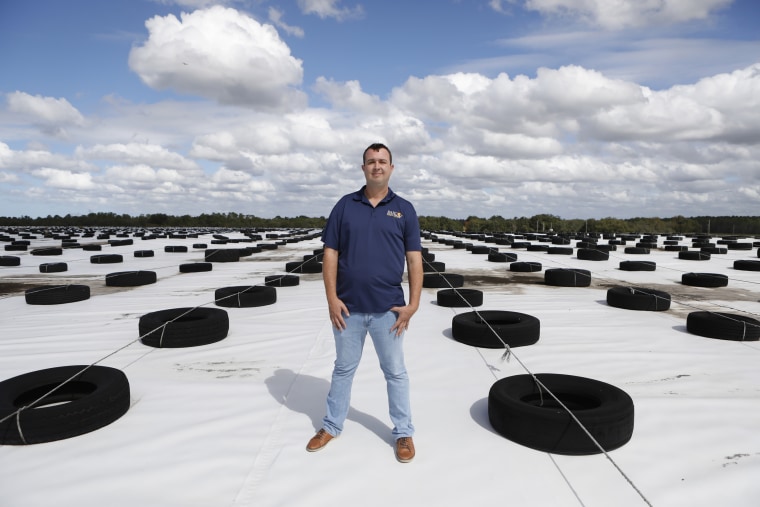[ad_1]
While recent research has linked environmental toxins, including air pollution, to rising rates of eczema, Vale said her daughter’s doctor didn’t draw any conclusions about the role of the incinerator. But she believes it’s a factor.
“We lived in Atlanta for 12 years, and she never got that diagnosis — ever,” she said, but acknowledged she has limited ability to seek out specialists. “We have four kids. If we go to the doctor every time they get sick, it gets crazy.”
Vale doesn’t plan to take legal action against any authorities or Covanta, the company that operated the Miami-Dade WTE and runs seven of Florida’s 10 others including Pasco’s, but others have.
Everybody’s facing: Where are we gonna put the trash?
Pasco County Commissioner Jack Mariano
A group of residents sued Covanta in March over the Miami-Dade fire, saying it exposed them to health threats or has already made them sick. In June, following a complaint filed last year by the environmental advocacy group Earthjustice, the EPA launched a civil rights probe into whether state environmental regulators knowingly harmed the health of Black and Latino communities.
The Earthjustice complaint alleged those groups are disproportionately likely to live near Florida’s waste incinerators, and that officials withheld safety information on their emissions from people with disabilities or limited English.
An EPA spokesperson said the agency, which isn’t scrutinizing Covanta in the matter, couldn’t comment on active investigations. Florida’s Department of Environmental Protection declined to comment.
In New York, state environmental authorities are investigating accusations that Covanta’s incinerator in Hempstead, on Long Island, for years dumped toxic ash into a landfill near a predominantly Black neighborhood, with some residents claiming health impacts, Newsday has reported. The area’s school district also faces a wrongful death lawsuit filed this month by a family alleging the plant contributed to their son contracting lymphoma after starting middle school there. He died last year.
Covanta isn’t named in that suit, and the company has denied wrongdoing over its ash disposal practices, saying that they were conducted under regulators’ oversight and that no evidence has emerged linking its operations with any health threats.

The company’s incinerators often have “the tallest stack on that skyline in a very heavily industrial area,” making it easy to “point the finger at us,” said Covanta area asset manager Patrick Walsh, who oversees the WTEs in Florida’s Pasco, Hillsborough and Lake counties, adding that more in-depth analysis is needed to assess the health accusations.
“You have to compare waste-to-energy to the alternative,” said Joe Kilsheimer, executive director of the Florida WTE Coalition, a group of several South Florida government bodies and Covanta.
The state, which touts its capacity to burn more municipal solid waste than any other, saw the fastest population growth in the U.S. last year, driven largely by migrants to greater Tampa. Its densely populated coastal areas have made space for landfills — which emit methane, a potent greenhouse gas — scarce and expensive.
You have to compare waste-to-energy to the alternative.
Joe Kilsheimer, executive director of the Florida WTE Coalition
While garbage volumes would typically be expected to fall as the U.S. economy slows and people buy and throw out less, Roessler said, “we have not seen that in Florida.”
Trash haulers picked up nearly 51 million tons of rubbish in 2022 statewide, up from 47 million in 2020 — an increase akin to almost 90,000 fully loaded semitrailers.
Five months after the fire at the Miami-Dade WTE, the county’s sanitation chief resigned after 15 years in leadership there, issuing a warning on his way out: Find somewhere to put all the trash, or halt construction projects in the area to slow waste pile-up.
Pasco County is facing a crunch, too, with its residential growth outpacing both Hillsborough’s and Pinellas’. Its WTE is already expected to burn 440,000 tons of garbage this year, nearly 100,000 more than usual, Roessler said. And with the county population up 8% in just the last two years and solid waste volumes up 15% in the last four, households’ annual garbage disposal fees have risen to $100, from $93 last year.
 Latest Breaking News Online News Portal
Latest Breaking News Online News Portal
